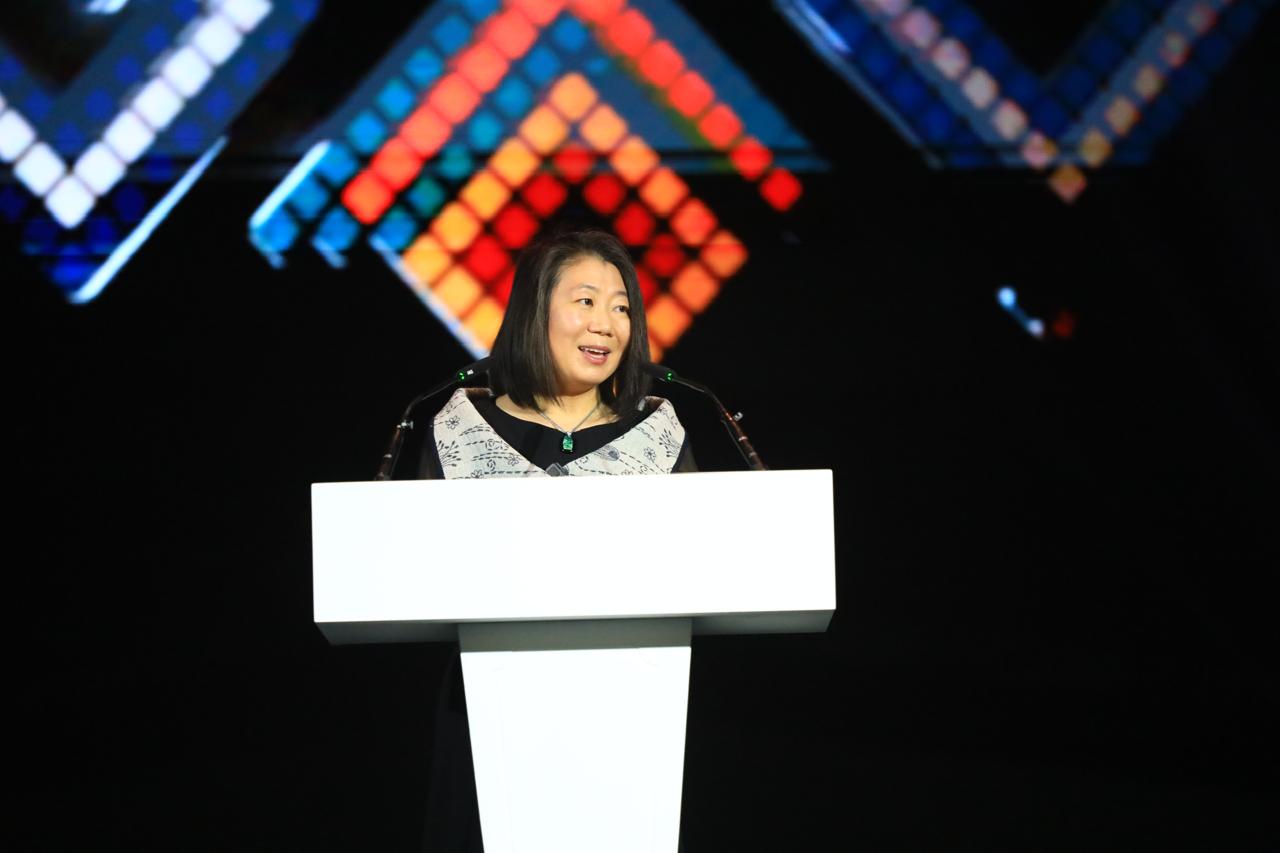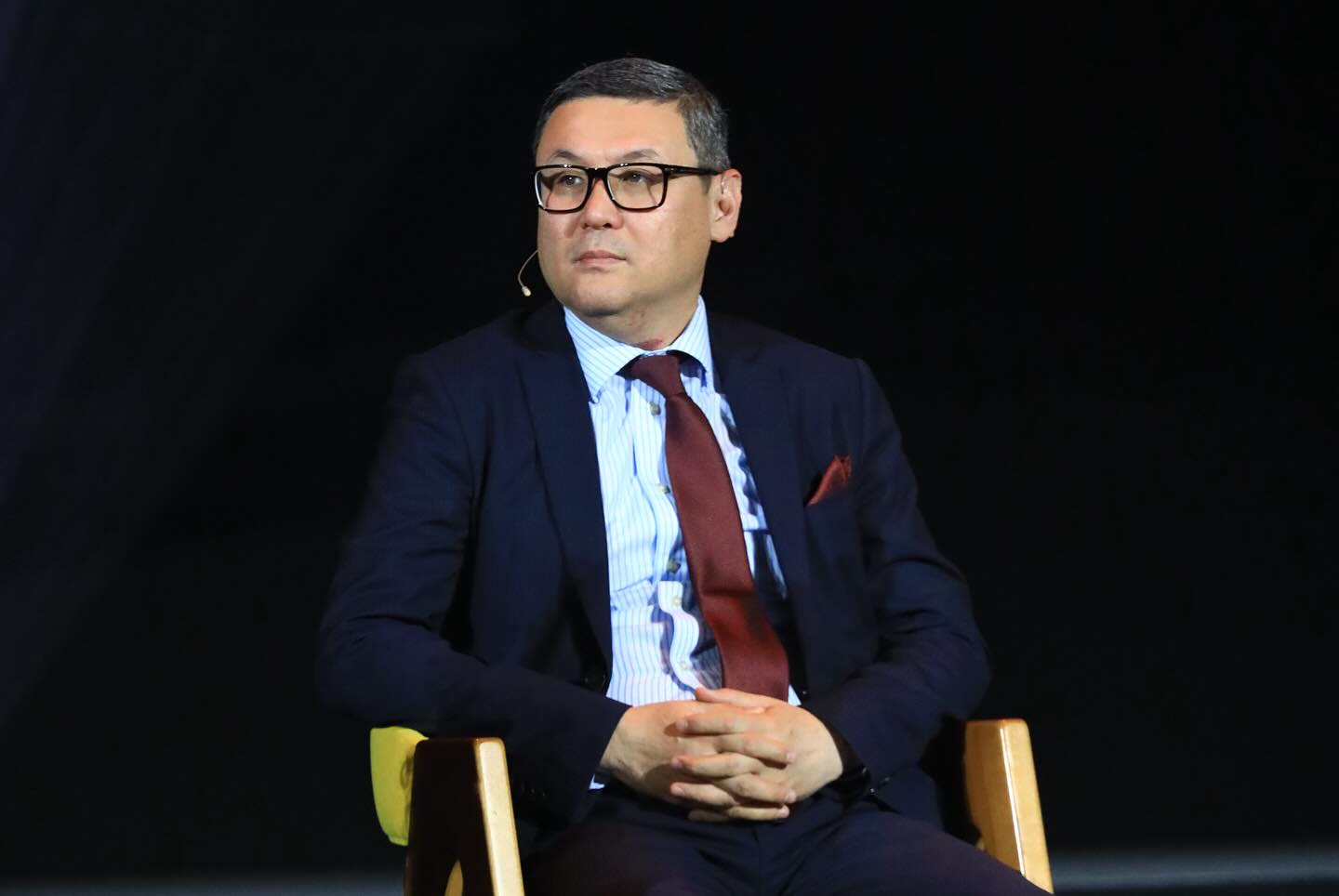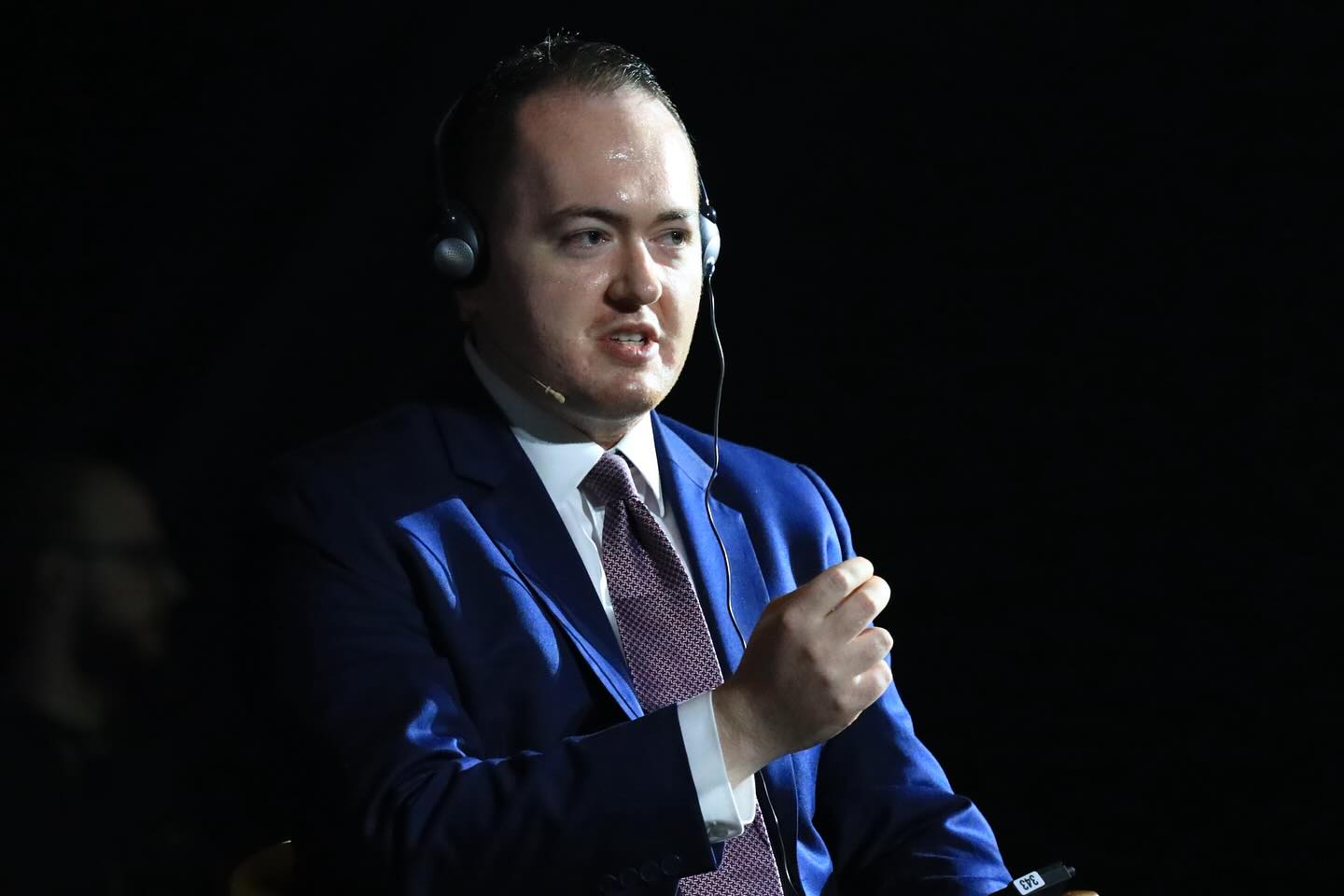ASTANA – The Qazaq Forum, a forum of online content creators in the Kazakh language, returned to Astana with its seventh edition on May 30.

The forum is organized annually by the United States Embassy in Kazakhstan. Photo credit: Qazaq Forum
Organized by the United States Embassy in Kazakhstan, the forum brought over 300 media experts, journalists, and bloggers to discuss topics such as future technologies, the culture of content creation and consumption, artificial intelligence (AI) and international regulatory standards and the creative industry. The topic of this year’s edition was Foresight: New Technologies and Media.
Judy Kuo, deputy chief of the U.S. Mission in Kazakhstan, welcomed the participants and stressed the importance of such venues for the development of Kazakh-language media content.
“Thank you all for being here to discuss, develop, and celebrate Kazakh-language media in all of its forms. QazaqForum has been a flagship event for the U.S. embassy’s support for Kazakh-language media for many years,” said the American diplomat.

Judy Kuo. Photo credit: Qazaq Forum
Speaking about why the United States finds it important to support the Kazakh language, the American diplomat underscored their firm belief that to prosper as a young state, Kazakhstan needs to “embrace the linguistic and cultural traditions of its rich heritage while confidently integrating them into the modernity of 21st-century Kazakhstan.”
“The resulting strong, sovereign, democratic Kazakhstan benefits both our nations and leads to a stronger, more stable, peaceful, and prosperous Central Asia,” said Judy Koo.
From the very first edition of the forum until the seventh one, tremendous changes have occurred and the future that participants often talk about is already happening.
“Today we are implementing the kinds of technology that we could not have imagined even just a few years ago. And Kazakhstan is at the forefront of cutting-edge technology in the region,” she said, expressing her admiration for young Kazakh thought leaders, entrepreneurs, and engineers working in AI, machine learning, and large language models, especially in the Kazakh language.
“Kazakh innovators are leading the charge to bring about incredible changes as technology and media meet in new ways,” she said.
According to her, merely developing new technologies is not sufficient. She stressed the need for responsible usage and the importance of not leaving their development to external institutions that might have questionable intentions.
“The work that you do as content creators is crucial in shaping not just the media landscape here in Kazakhstan, but the hearts and minds of a rising generation of Kazakhs who rely on Kazakh-language media not only for entertainment, but for news, information, and expert opinion,” said Judy Koo.
Future technologies
The forum’s first session explored future technologies. Yerkin Tukumov, director of the Kazakhstan Institute for Strategic Studies (KazISS), outlined substantial changes that technologies have brought up in a short period of time.
“Now, everything changes radically in a span of one generation,” said Tukumov. Because of such rapid changes, one should be cautious about discussing what the future holds.

Yerkin Tukumov. Photo credit: Qazaq Forum
Tukumov listed several trends that he thinks are worth being cautious about. The first technology is AI, to which Kazakhstan, he noted, is not yet prepared well. “In Kazakhstan, we underestimate AI and its importance. We are yet to get there. As one futurologist said, the future has already arrived but not everywhere,” said Tukumov.
He urged the countries to be ready for “revolutionary times.”
“We talk a lot about how to diversify away from oil, how to protect sovereignty, strengthen Kazakhstan as a state, and one of the ways is the introduction of new technologies based on AI. AI already penetrates all spheres of human life to the extent that we can often confuse where it is a reality or virtual reality,” said Tukumov.
According to the Kazakh expert, the biggest challenge lies in the transition from AI to generative AI. “There is a risk that at one point we can end up weaker than this generative AI,” said Tukumov.
According to McKinsey Global Institute, generative AI has the potential to contribute an additional $2.6 trillion to $4.4 trillion annually.
“What is our part in this? This is huge money – $4 trillion. By 2030, almost 70% of all services will be automated thanks to AI. How ready are we for this challenge,” he said.
Biotechnologies rank second important future technology for Tukumov.
“Today we are living in a very good time. Steven Pinker said this is history’s most peaceful time. People want to live longer. There is an understanding that people can live to 90, 100, and more. But people don’t just want to live longer, but want to stay healthy as long as they can,” said Tukumov.
It is imperative for Kazakhstan to invest in the development of biotechnologies.
The expert also discussed climate change, but he suggested focusing on preventing it from worsening rather than on how to stop it, as it is already happening.
“Kazakhstan is one of the world’s most vulnerable countries to climate change. Our temperatures have already risen by 1.5 degrees Celcius,” he said.
New technologies – civil activism
The participants of the first session agreed new technologies facilitate the development of active civil society.
“Social media give bigger advantages to the society than the state. It creates more challenges for the state because access to information increases immensely. With this information, it is completely different citizens,” said Tukumov.
Tukumov went on to question the very term of mass media. According to him, every person possessing a smartphone can be a source of information.
“A person with one million friends on Facebook might be stronger than a traditional media,” he added. “One does not need to create a party to be able to influence the public. The active civil position is enough, being savvy with technologies.”
View from the United States
Emerson Brooking, a director of the strategy and resident senior fellow at the Digital Forensic Research Lab of the Atlantic Council Technology Programs, shared with the forum participants how the U.S. government views AI.
“So often, technology is good, but technology can tend to erase language and culture,” he said.

Emerson Brooking. Photo credit: Qazaq Forum
“A good AI tool is not necessarily the one that has been trained on trillions of pieces of content, the one that has 100 billion parameters or more. Sometimes it can be a smaller model, which can be brought on consumer-grade GPUs, which had been designed for a particular purpose. I think there is a great opportunity for state investment to help sort out and develop those,” he said.
Brooking said the challenges facing the United States in terms of AI are practical ones. One of them deals with data scraping and training on copyrighted material.
“It is the way that these large companies have been freely using the entire corpus of human knowledge to train their models, without providing any sort of payment, breaking in many ways copyrights that existed in the United States for 150 years,” he said.
He added that even if heavy penalties were imposed on these companies, the damage would already have been done because they had already collected user data.
AI is also transforming political communications in the United States. According to Brooking, this is a “more basic and unsettled question” for the country.
“Is it appropriate to use AI-generated images and text when you are conducting a political campaign? This is a little bit different from using a deep fake to allege something happened when it did not. But there is a broader revolution in political communications that is taking place in the United States right now. Different nations are taking different approaches to it. But in the United States, it is still very much an unsettled issue. I think by the end of our 2024 election cycle, there will be a sort of consensus,” said the American expert.
Brooking continued his remarks by discussing the historical context of the internet’s creation and commercialization in the United States. It occurred during a period when government regulation of communication platforms was minimal.
He noted that many of the challenges associated with the internet today stem from this lack of regulation during its inception. This lack of regulation became problematic as the internet evolved into a central part of civic and public life, while the U.S. government remained largely uninvolved.
